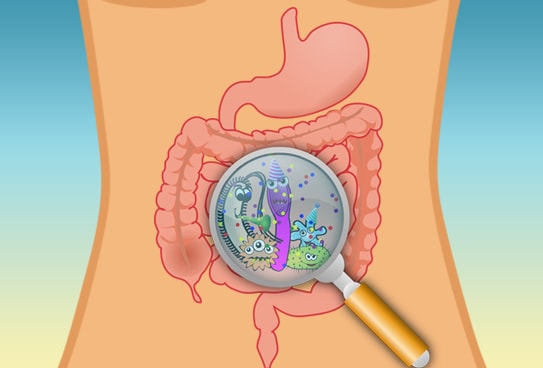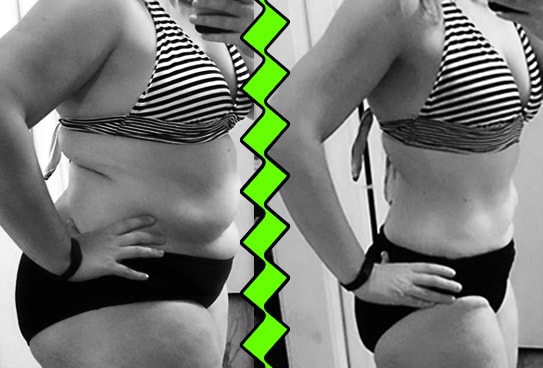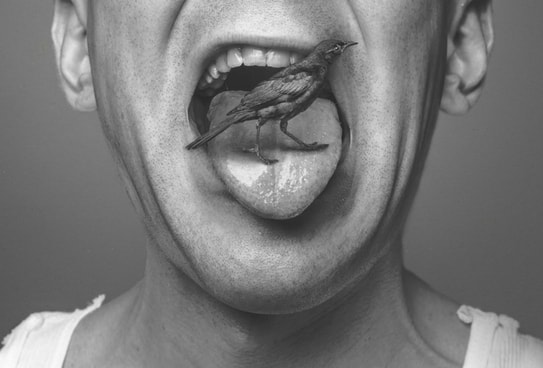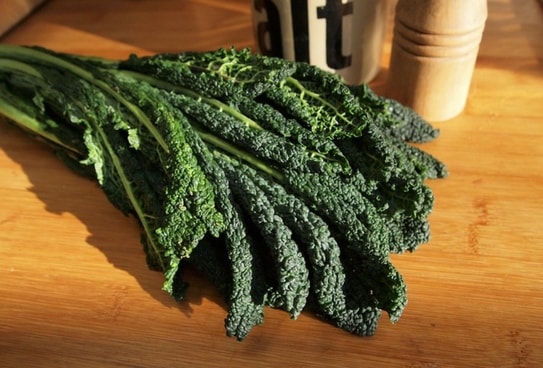You’re tired of having digestive problems. Your tummy troubles are doing all sorts of whacky things to your body. And now you’re wondering if it’s because you have an unhealthy gut.
Well dear reader, you are not alone. Almost 100 million Americans deal with some kind of digestive issue every day. And they all want to feel better.
There are many things that can cause an unhealthy gut. And most of it can be traced back to the bacteria in your gut.
Today you’re going to find out what causes bad bacteria in the gut and what you can do about it.
First of all you need to know that your gut isn’t just your stomach or intestines. It starts from your esophagus and goes right down to your rectum.
In school you were taught that your gut breaks down the food you eat. It stores some of it, sends some throughout the body, and gets rid of any waste.
But it does so much more than that…
Scientists actually believe your gut is like a second brain. That’s because it affects your health, mood, and even your cognitive abilities.
Yes, your gut is one helluva system. And it’s all due to the trillions of cells of gut bacteria.
The Good, The Bad, & The Bacteria
Alas, not all bacteria is created equal.
Good bacteria boosts your immune system, creates nutrients for your body, and improves digestion.
Then there’s bad bacteria. This is the stuff that affects your skin, destroys your mind, and causes all kinds of severe digestive problems.
Bad bacteria is a result of your diet, your environment, and the way you live.
Unfortunately, you can’t just swallow some pills and expect bad bacteria to disappear. That’s not going to work. You’re not going to completely get rid of the bacteria in your gut either. So forget about trying.
The key to having a healthy gut is balancing the good and bad bacteria.
You want to support the good bacteria and limit the the bad ones. But in order to do that, you’ve got to listen to your body and pay attention to the warning signs.
What causes Bad Bacteria in the Gut?
Things like gas, bloating, constipation, diarrhea, etc, are all common signs that your gut bacteria is tripping. But there are other issues that most people ignore.
Here are 17 warning signs that you have an unhealthy gut and some tips for balancing bacteria.
1. Fluctuating Weight
Having an unhealthy gut may cause your weight to go up or down, which can be very frustrating.
If you’re losing weight when you shouldn’t be, it’s probably because your gut isn’t doing a good job of absorbing nutrients from the food you consume. This may sound like a wonderful solution if you’re overweight. But it’s not.
That’s because being overweight means the bacteria in your gut is very different from someone who’s fit and healthy.
However, if you choose to get healthy by eating well and exercising, you’ll be amazed at how much your gut health will improve.
2. Antibiotics, Opioids, and Other Drugs
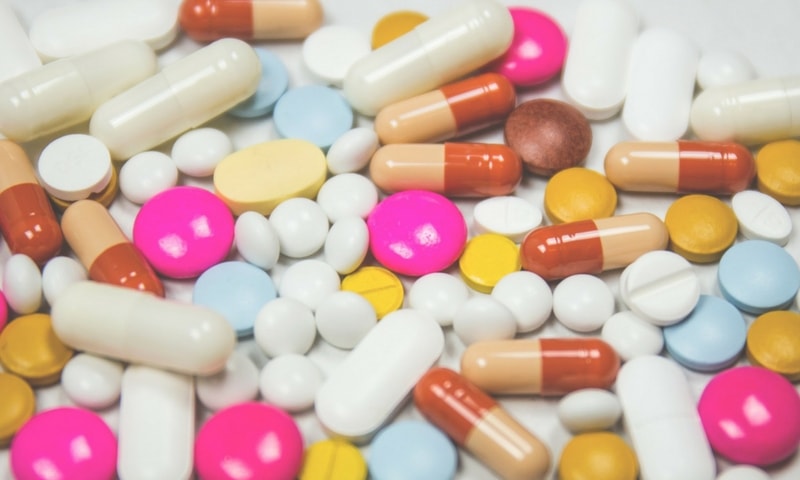
You already know about the opioid epidemic affecting millions of people. Drug companies have done a great job of making sure that people get addicted to opioids.
But what about all the other over-the-counter (OTC) drugs you can easily get at your local pharmacy? Surely those can’t be as bad as opioids, right?
Well Shirley, you’re wrong.
Take antibiotics for instance. This wonder drug has been a godsend to the human population. You can use it to get rid of things like UTIs, strep throat, or rabid raccoon bites.
However, even though antibiotics do a great job of killing bad bacteria, they don’t stop there. They even attack the good bacteria like a trigger happy mobster.
That’s not cool. Especially when you consider that the good bacteria doesn’t replace itself unless you do something about it.
So if you misuse antibiotics or any other kind of drug (excluding Mary Jane), you can kiss your gut (and life) goodbye.
3. Awful Body Odor
If your ‘scent-sational’ aroma has the power to turn off Pepé Le Pew, you probably have an unhealthy gut.
This happens when your gut isn’t digesting food properly, which leads to the production of smelly compounds. Those compounds then get carried throughout your body. And they eventually get excreted through your skin as sweat.
Obviously things like environment, general physical health, and personal hygiene affect your body odor. But if you’re eating a lot of fatty junk foods, your gut will take longer to digest them.
So if you don’t want your personal scent to repel people like the plague, then change your diet.
4. Embarrassing Skin Problems
Believe it or not, an unhealthy gut can cause issues like dry skin, acne, eczema or dandruff.
And despite what you think… no beauty product can fix a poor digestive system.
If your gut isn’t digesting food properly your body won’t get enough skin healthy vitamins like A, K, and E.
Those three vitamins can:
- Boost your immune system
- Fight bacteria that causes acne
- Prevent pimples, rashes and redness
- Give you clear, glowing skin that’s healthy
You can also try to manage your skin issues by eating healthy and using a probiotic supplement. Doing so will prevent any kind of buildup in your gut that might lead to inflammatory problems.
5. Poor Sleep Cycles
Is a lack of sleep making you look like a zombie during the day?
That may be due to the low levels of serotonin in your body.
Serotonin is a chemical compound that controls your sleep and wake cycles. It’s mainly found in your gut, blood, and nervous system.
To maintain healthy serotonin levels, you need a diet that has lots of the amino acid tryptophan.
But that’s not all…
If your work schedule is crap or you’re constantly jet-setting all over the globe, you can mess up your serotonin production.
So if you want to protect your gut and get better sleep, start by fixing your lifestyle.
6. Lack of Energy

A family. A daily commute. A job.
All of those things can definitely suck the life out of you.
But what if they don’t and you still feel lethargic and lazy most of the time?
Well maybe there’s something wrong with your gut. The bad bacteria might be impeding the digestive process and preventing your body from getting the healthy nutrients it needs.
That might be why you feel tired or fatigued all the time. Or you may have a leaky gut, which causes toxins to escape through the walls of your intestines.
Regardless of reason, you need to watch out for both because they affect your energy levels.
7. Stress and Anxiety
If you’re a stress case and literally get worked up every single day of your life, you are slowly killing yourself.
Like your brain, your intestines have millions of nerve tissue. That’s why you feel good when eat certain foods.
But if you’re constantly stressed out, your cortisol levels will go through the roof and cause your gut to stop functioning properly. This can lead to serious health issues which may kill you. You don’t want that.
BTW, you can’t live without stress in your life. So don’t think you can get rid of it. It’s necessary for your survival.
What isn’t necessary for your survival are certain stressors. These are external influences that cause you stress. And you need to learn how to control or eliminate the bad stressors in your life.
Examples of bad stressors are: poor work environment, toxic friends, and your in-laws.
8. Mental Issues
As mentioned earlier, your gut is like a second brain. It’s got a bunch of neurotransmitters that are created by the good bacteria.
Those neurotransmitters let the brain know if your gut is working properly or if things are on the fritz.
New studies are beginning to show that some mental disorders are linked to poor gut health.
For instance, depression and anxiety are two disorders that seriously affect your mood. And since 80 to 90 percent of serotonin is produced by your gut, any imbalances can cause depressive symptoms.
So next time you’re feeling down, don’t rule out your gut.
9. Lack of Vitamins and Mineral
Your body relies on your gut to create and synthesize the essential vitamins and minerals it needs.
If the good bacteria in your gut isn’t helping to convert food into nutrients, it means your digestive system has a problem.
Any food you consume won’t be digested properly and it’s going to result in a vitamin and mineral deficiency.
This can be serious especially when you consider that iron, magnesium, vitamin B12, B7, and D, cannot be produced by your body. You can only get it from healthy food.
So if your annual physical shows you’re lacking those things, you probably have an unhealthy gut.
10. Sugary Food Cravings

If you have a constant desire to eat sweet and sugary foods, the bacteria in your gut may be disrupted.
Usually this happens to people who are taking lots of antibiotics. And you already know that antibiotics get rid of both good and bad bacteria.
When that happens, the buildup of yeast can trigger your sweet-tooth obsession and cause you to seek out sugary treats.
Say no to sugar kids.
11. Acid Reflux
That burning sensation you get in your chest after eating is a symptom of acid reflux. It’s a common digestive problem that most people have experienced.
However, if it happens frequently it could mean you have an unhealthy gut.
In fact, according to the folks at VeryWell, this may be a sign of Gastroesophageal Reflux Disease (GERD).
When your stomach acid gets into your esophagus, it can leave a sour taste in your mouth or cause you to regurgitate.
Yes that sounds gross. But you don’t want it to happen often because over time the acidic bacteria can destroy the walls of your esophagus.
And if you ignore it, you may be at risk of developing esophageal cancer.
12. Autoimmune Disease
Imbalances in your gut bacteria can cause more than just digestive issues.
It’s also linked to autoimmune diseases such as Crohn’s disease, Multiple Sclerosis (MS), and Rheumatoid Arthritis (RA).
And even though experts are still exploring the causes for those diseases, one thing is for sure…
Virtually all of them happen when your immune system goes rogue and decides to attack its own healthy cells.
13. Yeast Infections
There’s a type of yeast that exists naturally in your intestines. It’s called Candida.
Even though we all need some amount of yeast, imbalances in your gut can cause an overgrowth. And if that happens it means your stomach acids are low.
When your stomach isn’t functioning properly, bacteria and yeast creep into your intestines where they multiply and cause all sort of digestive and bodily issues.
This is how you end up having to deal with fungal infections, fatigue or even fibromyalgia.
14. Killer Bad Breath

If you’re allergic to good oral hygiene it can affect the smell of your breath.
But what if you brush frequently and your breath still smells as pleasant as sewer waste?
Well, you may have a digestive issue as a result of an unhealthy gut.
Any kind of bacterial imbalance in your gut can affect the smell of your breath. And in some cases you can even tell what kind of problem you have.
For instance, if it smells like puke, you may have acid reflux or a kidney issue.
On the other hand, a fruity scent may be part of a diabetic issue.
15. Arthritis
Poor digestion attacks your entire body. You already know that.
But now, research suggests that it may also be linked to the development of arthritis.
Since digestive issues lead to inflammation, which causes joint pain, experts believe that arthritis may be a symptom of poor gut health.
Take Rheumatoid Arthritis (RA) for example. It’s a common autoimmune disease that’s now being associated with gut health and intestinal permeability.
Intestinal permeability, or leaky gut as you know it, is a condition whereby toxins breach your intestines. When this happens, it can trigger an immune response that causes the symptoms of RA, type 1 diabetes, and a ton of other illnesses.
16. Weak Nails That Break
Low stomach acids can also keep you from getting nutrients like calcium, protein and zinc from the food you eat.
Those three nutrients are responsible for developing strong healthy nails. And if your nails are soft, brittle or break easily, it’s probably because your digestive system is out of order.
According to the American Academy of Dermatology, poor digestive health is one of the primary causes of ingrown toenails. Certain nutrient deficiencies can weaken your nails and cause them to become misshapen.
17. Food Intolerance and Allergies
Poor gut health may be the culprit behind certain food intolerances and allergies.
It usually happens in the absence of certain digestive enzymes that are needed to break down different types of food.
In the case of food intolerances, lactose intolerance is a well known issue. Without the lactase enzyme your gut cannot digest lactose from products like milk, cheese, etc. And this can cause various digestive problems like diarrhea, bloating and gas.
Allergies are bit more tricky. They extend beyond your digestive system and can affect other things like your respiratory system.
Sometimes you can detect allergies based on what you eat. And if it’s a food you really like, you might be able to find an OTC pill to make it more palatable.
You just have to decide if it’s worth the sacrifice or if you should just give up the food that’s triggering those allergic reactions.
How Do You Improve Gut Health and Balance Bacteria?
The biggest secret to healing your gut is changing your diet and getting rid of toxic foods. In addition to that you also need to make healthy lifestyle changes starting with following:
- Detox your body – A simple detoxification regimen will flush most of the inflammatory elements from your body. This will improve your gut naturally and balance the bacteria.
- Increase your probiotic intake – Consuming fermented foods will give you a natural source of good bacteria. And a daily probiotic supplement can quickly restore the healthy bacteria in your gut.
- Consume more L-glutamine – You can strengthen and rejuvenate the walls of your intestines with healthy supplements that contain this essential amino acid.
- Drink more water – Staying hydrated lubricates your joints, controls your body temperature, keeps your gut healthy, and more. Without water your body can’t operate at it’s optimal level, so drink up.
- Manage your stress – You should eliminate any bad stressors in your life and find ways to reduce your overall stress levels. Keeping your cortisol levels low is good for your gut.
Final Thoughts
Now that you know what causes bad bacteria in the gut and how you can improve your gut health, you can start to build a healthier gut.
Keep in mind that there may be other factors besides an unhealthy gut that can be the source for certain conditions.
In severe cases you’ll want to get your doctor on board so you can develop a plan that works to address your specific situation.
But as long as you treat your body right, you can prevent most of the factors that can lead to an unhealthy gut.
And remember, you’re not the only one who might have an unhealthy gut. Your friends may also be at risk. So do them a favor and share this helpful post with them by using the buttons below.
